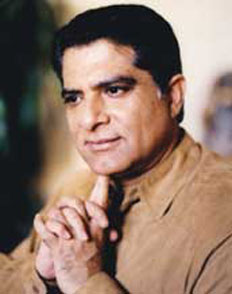About the ideawallah
Gavin Barrett is Owner/Founding Partner + Chief Creative Officer, of award-winning Toronto multicultural advertising agency Barrett and Welsh. In pursuit of big ideas he has: nibbled on pigs' ears (not on a live pig at the time); gone elephant-back in the Thai jungle (no elephants were hurt); gambled in a Macau casino (was utterly destroyed). His ads: have run in 35 countries, helped elect prime ministers, attracted the ire of the lawyers for Dolly the clone sheep, drawn an angry crowd in Lagos, have been studied in business texts in Canada and India and received derisive mention in a John Irving novel. His poems: can be found in Penguin’s anthology of 14 contemporary Indian poets, Reasons for Belonging.
He cannot: sing.
He cannot: sing.
Barrett and Welsh

We're not in the ad business. We're in the moving business. We move product. Perceptions. Behaviour. Market share. But most of all, we move people. We are the only mainstream-multicultural agency in Canada, capable of handling mainstream or multicultural advertising needs with equal ease, in global and North American markets. We have provided multicultural advertising services to clients in every category including Bell Canada, Brampton Transit, Burlington Transit, CBC, Centennial College, City of Brampton, Diageo, Niagara Region, Procter & Gamble, Rogers, Shaw Cable, Sobeys, TD Bank, Unilever, VivaNext, Walmart and York Region Transit.
Tags
#MulticulturalMonday
101
2016
A fistful of rupees
A tip of the turban
advertising
agency search
Asian Indian
awards
banking
Barrett and Welsh
basics
BBH
beauty
branding
Bruno Barbey
Canadian
celebrations
Chinese
Chinese New Year
Christmas
cliché
copywriting
creative
Cricket
desi
diversity
Edward Curtis
Egypt
Eid
ethnic
ethnic media
ethnicity
Festival
financial services
food
Glossary
grocery stores
GTA
halal
Halloween
Hassan Hajaj
Helen Levitt
hockey
How not to
Indian
Indian English
Indo-Canadian
Indonesia
inspiration
Irving Penn
Islam
Jewish
language
Magnum
marketing
mistakes
Morocco
multicultural
Multicultural Monday
Muslim
Native American
New Canadians
New Year
Old School
parody
photography
politics
race
Ramadan
rant
research
retail marketing
Rogers
Screening Room
Secrets
simplified script
Singapore
South Asian
spot
statistics
strategy
targeting
TD Canada Trust
TED
telecom
traditional script
TVC
understanding and misunderstanding
USA
video
Visa
year in review
Year of the Sheep

















